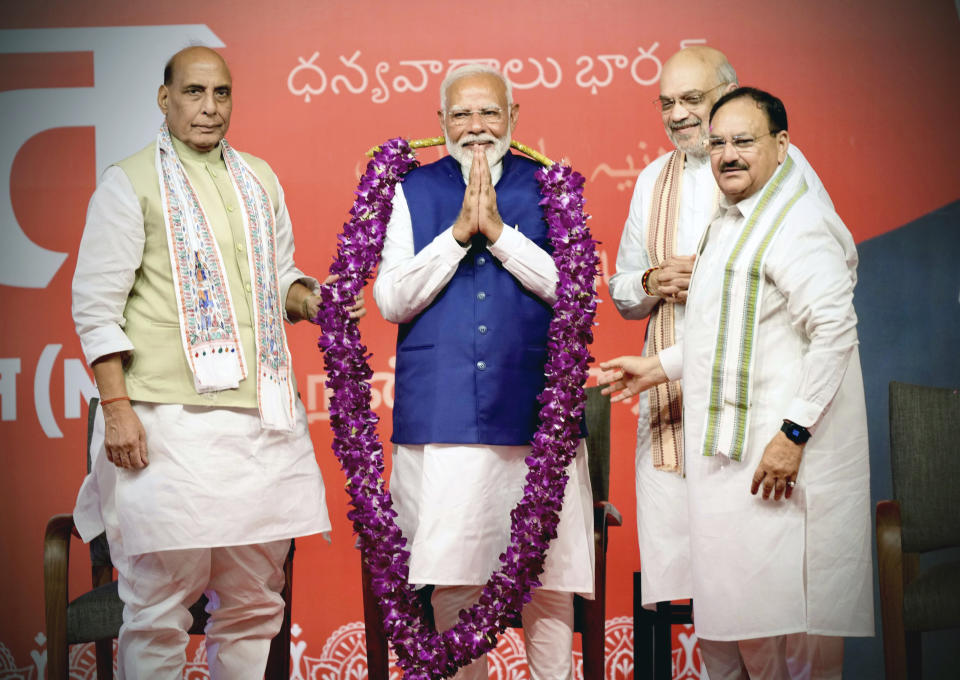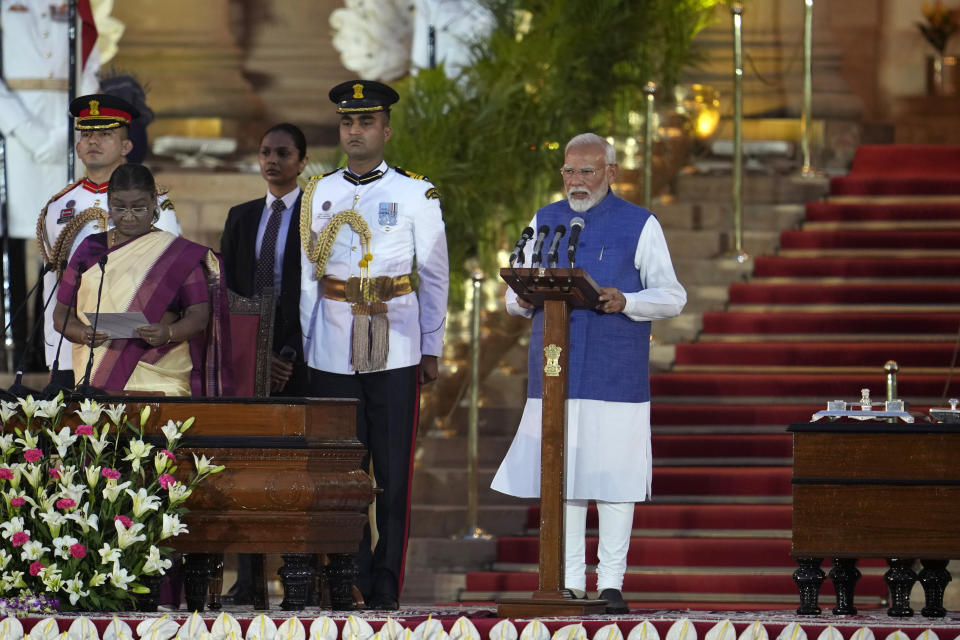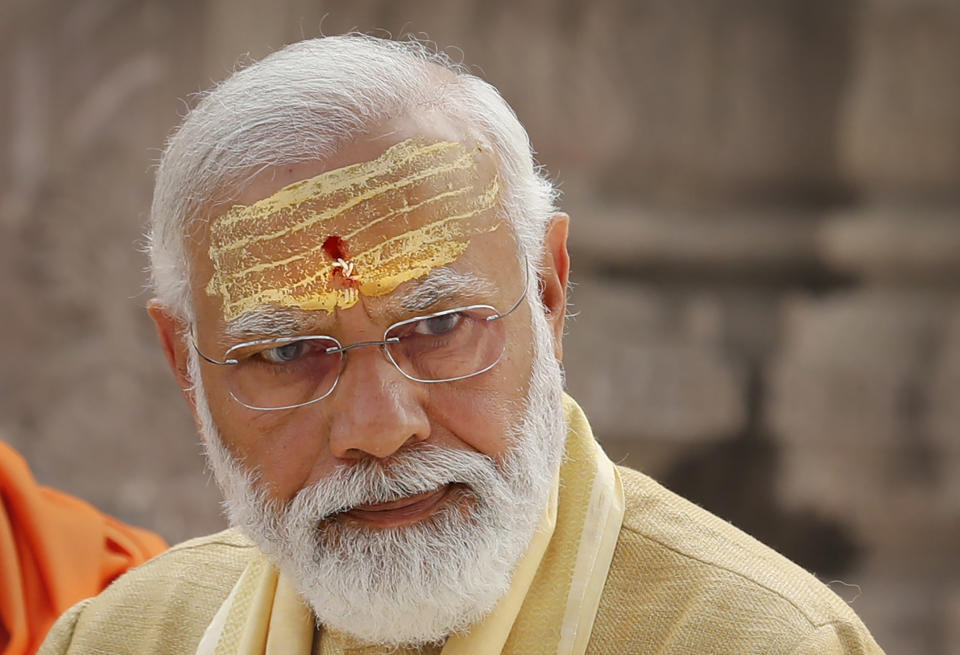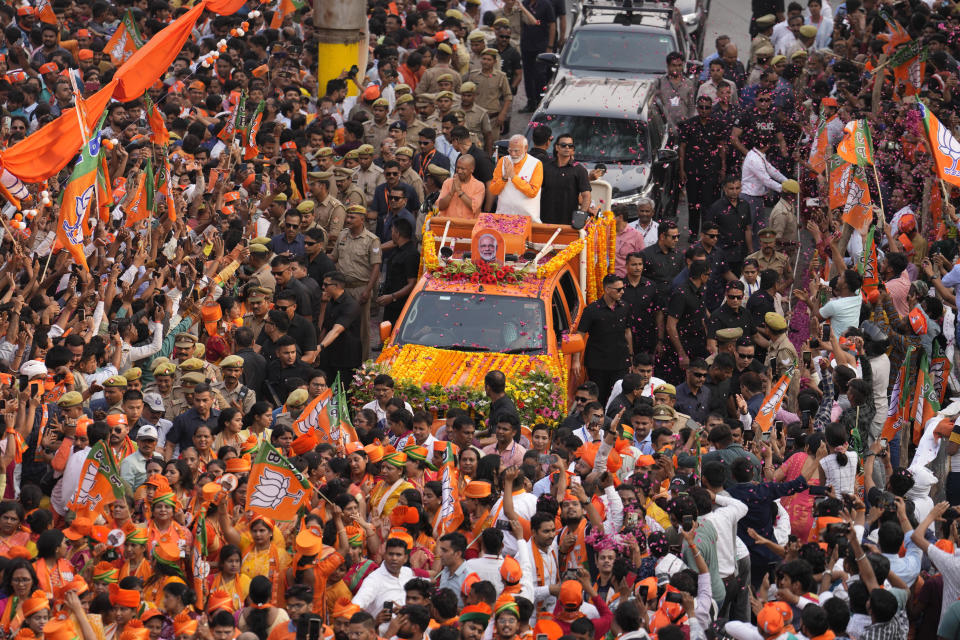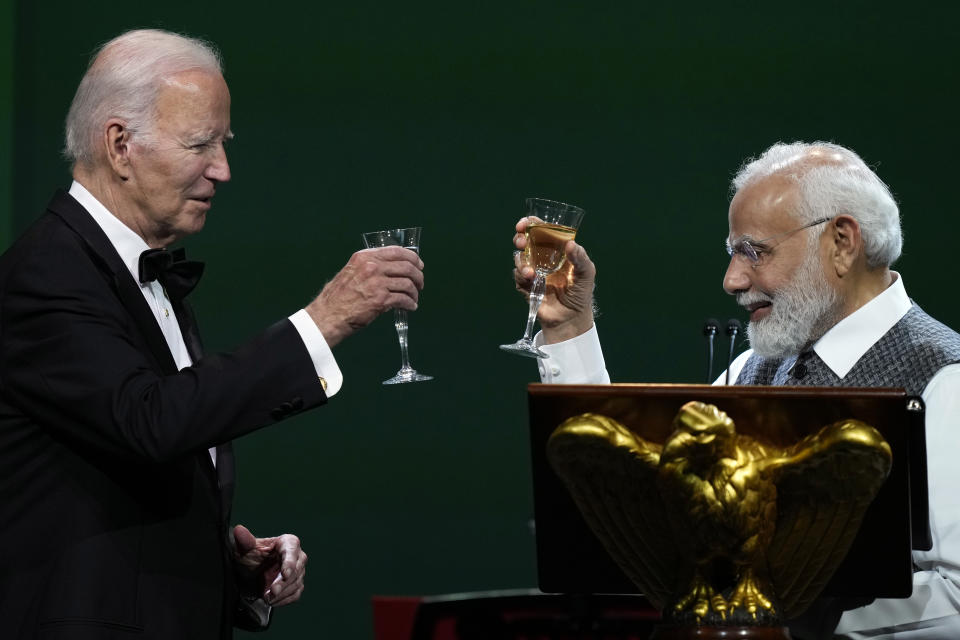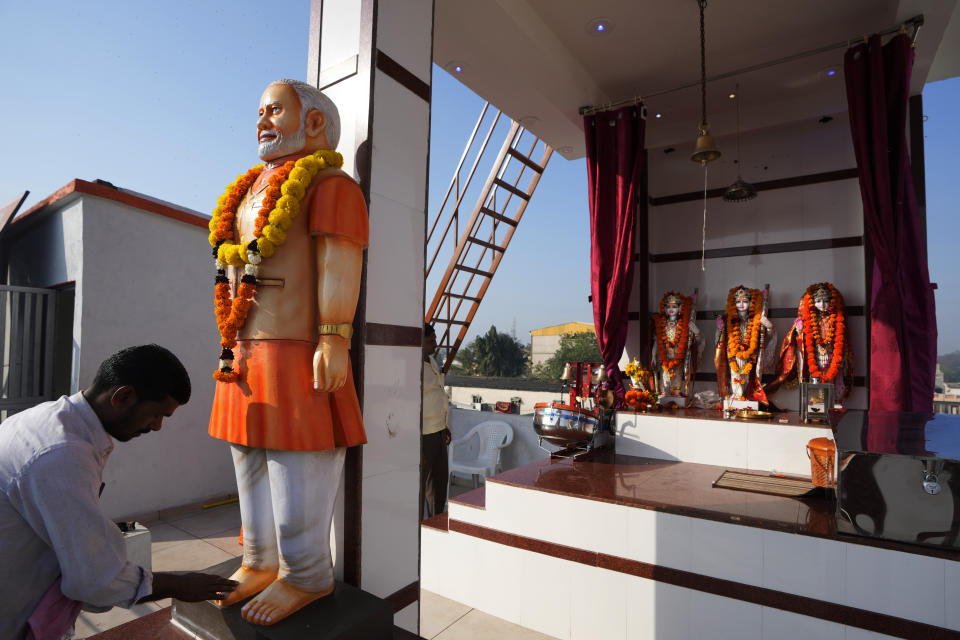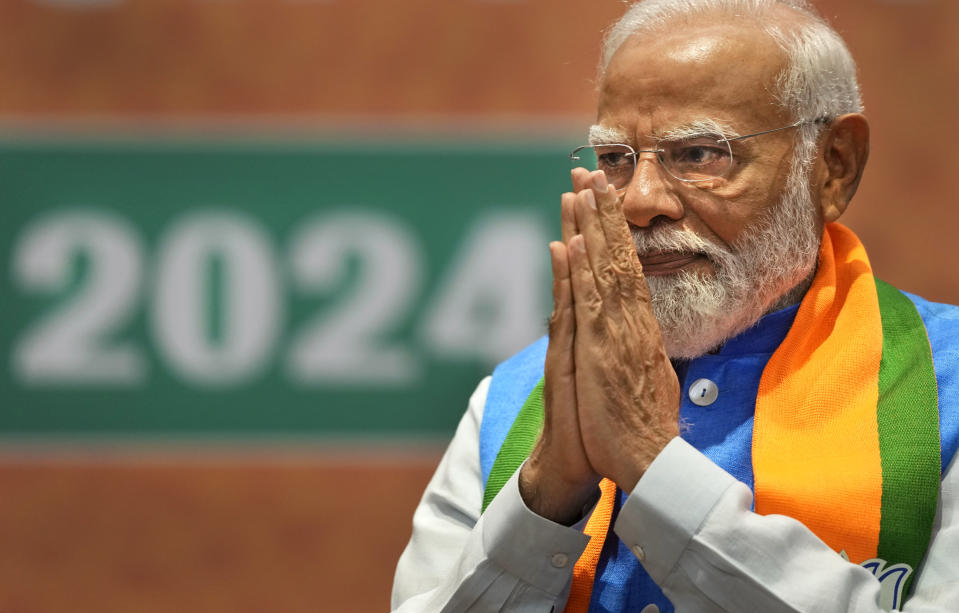Narendra Modi's third term as India's prime minister may prove the most challenging
NEW DELHI (AP) — India's Prime Minister Narendra Modi took office for a third consecutive term on Sunday, but it may hold more challenges for the popular-but-polarizing leader than his past decade in power.
His Hindu nationalist Bharatiya Janata Party, which won by landslides in 2014 and 2019, failed to secure a majority to govern on its own this time, though his National Democratic Alliance coalition with the BJP and other parties won enough seats for a slim parliamentary majority.
Modi and his Cabinet members took the oath of office, administered by President Droupadi Murmu, at India’s presidential palace Rashtrapati Bhavan in New Delhi.
Needing support from his regional allies to maintain his power means Modi may have to adapt to a style of governance he has little experience with, or desire for.
Modi, 73, is only the second Indian prime minister to win a third straight term. He has presided over a fast-growing economy while advancing Hindu nationalism.
To supporters, he is a larger-than-life figure who has improved India’s standing in the world, helped make its economy the world’s fifth-largest, and streamlined the country’s vast welfare program, which serves around 60% of the population. To some, he may even be more than human.
But to critics, he’s a cult leader who has eroded India’s democracy and advanced divisive politics targeting Muslims, who make up 14% of the country’s population. They say he has also increasingly wielded strong-arm tactics to subdue political opponents, squeeze independent media and quash dissent.
Modi’s government has rejected such accusations and says democracy is flourishing.
Political analysts say Modi’s victory was driven by social welfare programs that provided benefits from food to housing and by the strident Hindu nationalism that consolidated Hindu votes for his party. Hindus make up 80% of India’s population.
The economy is growing by 7% and more than 500 million Indians have opened bank accounts during Modi's tenure, but that growth hasn't created enough jobs, and inequality has worsened under his rule, according to some economists.
Modi began his election campaign promising to turn India into a developed country by 2047 and focused on highlighting his administration's welfare policies and a robust digital infrastructure that have benefited millions of Indians.
But as the campaign progressed, he increasingly resorted to anti-Muslim rhetoric, calling them “infiltrators" and making references to a Hindu nationalist claim that Muslims were overtaking the Hindu population by having more children. Modi also accused the opposition of pandering to the minority community.
Conspicuous piety has long been a centerpiece of Modi's brand, but he's also begun suggesting that he was chosen by God.
“When my mother was alive, I used to believe that I was born biologically. After she passed away, upon reflecting on all my experiences, I was convinced that God had sent me," he said in a TV interview during the campaign.
In January, he delivered on a longstanding Hindu-nationalist ambition by opening of a controversial temple on the site of a razed mosque.
After campaigning ended, Modi went to a Hindu spiritual site for a televised 45-hour meditation retreat. Most Indian TV channels broadcast the event for hours.
Born in 1950 to a lower-caste family in western Gujarat state, as a young boy Modi joined the Rashtriya Swayamsevak Sangh, a paramilitary, right-wing group which has long been accused of stoking hatred against Muslims. RSS is the ideological parent of Modi's BJP.
The tea seller's son got his first big political break in 2001, becoming the state's chief minister. A few months in, anti-Muslim riots ripped through the region, killing at least 1,000 people. There were suspicions that Modi quietly supported the riots, but he has denied the allegations.
In 2005, the U.S. revoked Modi’s visa, citing concerns that he did not act to stop the communal violence. An investigation approved by the Indian Supreme Court later absolved Modi, but the stain of the dark moment has lingered.
Thirteen years later, Modi led his Hindu nationalist party to a spectacular victory in the 2014 national elections after promising sweeping reforms to jumpstart India’s flagging economy.
But Modi's critics and opponents say his Hindu-first politics have bred intolerance, hate speech and brazen attacks against minorities, especially Muslims, who make up 14% of India’s 1.4 billion people.
Months after securing a second term in 2019, his government revoked the special status of disputed Kashmir, the country’s only Muslim-majority state, and split it into two federally governed territories. His government passed a law that grants citizenship to religious minorities from Muslim countries in the region but excludes Muslims.
Decision like these have made Modi hugely popular among his diehard supporters who hail him as the champion of the Hindu majority and see India emerging as a Hindu majoritarian state.
Modi has spent his political life capitalizing on religious tensions for political gain, said Christophe Jaffrelot, a political scientist and expert on Modi and the Hindu right. During his time as a state leader, he pioneered an embrace of Hindu nationalism unlike anything seen before in Indian politics.
“That style has remained. It was invented in Gujarat and today it is a national brand," Jaffrelot said.

